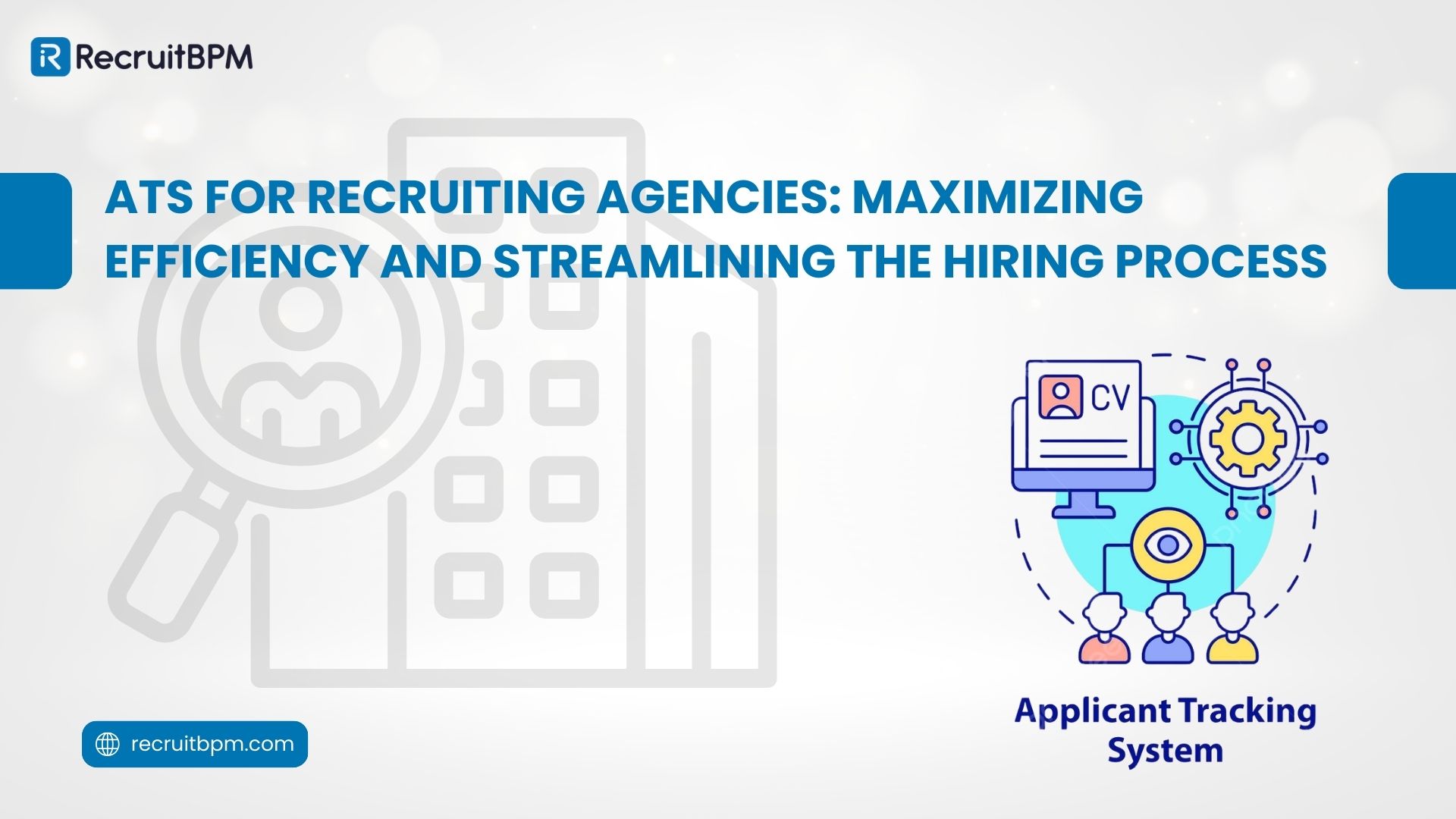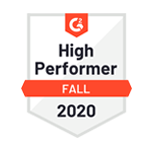Managing hundreds of candidates across dozens of client relationships shouldn’t feel like juggling chaos. Yet many recruiting agencies struggle with scattered spreadsheets, disconnected tools, and manual processes that drain productivity. An applicant tracking system built for recruiting agencies transforms this complexity into streamlined efficiency.
This guide explores how the right ATS eliminates workflow fragmentation. You’ll discover essential features that drive placements, common pitfalls to avoid, and why unified platforms outperform disconnected tools. Whether you’re scaling your agency or fixing broken processes, you’ll find actionable insights here.
What Is an ATS for Recruiting Agencies?
An applicant tracking system (ATS) for recruiting agencies centralizes candidate management throughout the hiring lifecycle. Unlike corporate hiring tools, agency-focused ATS platforms handle multiple clients simultaneously while tracking hundreds of active candidates.
The software automates resume parsing, job posting distribution, and interview scheduling. It maintains searchable databases of qualified candidates ready for immediate placement opportunities.
Core Functions Every Recruiting Agency Needs
Recruiting agencies require specialized functionality beyond basic applicant tracking. Your ATS must manage both candidate pipelines and client relationships without switching between separate platforms.
Candidate sourcing tools pull talent from job boards, social media, and referrals into one database. Resume parsing extracts skills, experience, and qualifications automatically. Advanced search filters help you match candidates to opportunities in seconds.
Client management features track hiring needs, communication history, and placement analytics. You need visibility into which positions remain open and which clients need attention.
Workflow automation eliminates repetitive tasks like follow-up emails and status updates. Time tracking and invoicing capabilities streamline back-office operations for temporary placements.
ATS vs. ATS+CRM: Why Integration Matters
Traditional ATS platforms focus exclusively on candidate tracking. They lack robust client relationship management capabilities that recruiting agencies need daily.
Separate ATS and CRM systems create information silos. Recruiters waste time switching between platforms to view candidate qualifications and client requirements. Data duplication leads to errors and missed opportunities.
Unified ATS+CRM platforms eliminate this fragmentation. You access candidate profiles and client details in one dashboard. Communication history, placement records, and performance metrics live in one searchable system.
This integration accelerates placements by connecting qualified candidates to open positions instantly. Your team collaborates more effectively when everyone works from the same data source.
7 Critical Challenges Recruiting Agencies Face Without the Right ATS
Recruiting agencies without modern ATS technology struggle against preventable operational challenges. These pain points directly impact your ability to make placements and grow revenue.
Manual Resume Screening Wastes 15+ Hours Weekly
Reviewing resumes manually consumes enormous recruiter time. The average corporate job opening attracts 250 applications, and recruiters spend just 6-8 seconds scanning each resume initially.
This approach misses qualified candidates buried in high-volume applications. Your team spends hours identifying talent that automated parsing finds in minutes.
Manual screening also introduces unconscious bias into candidate evaluation. Consistent, objective criteria get overlooked when humans review hundreds of resumes under time pressure.
Scattered Client Communication Loses Deals
Email threads, phone notes, and CRM systems rarely sync properly. Critical client preferences get lost across multiple platforms and team members.
When account managers and recruiters can’t access complete client histories, they duplicate outreach efforts. Clients receive inconsistent messaging that damages your professional reputation.
Missed follow-ups on hot job orders cost placements to competitors. Without centralized communication tracking, opportunities slip through gaps in your workflow.
Fragmented Tools Create Data Silos
Most agencies cobble together job boards, email marketing, spreadsheets, and basic ATS software. Each tool maintains its own database that doesn’t communicate with others.
Recruiters waste time manually transferring candidate information between systems. Data entry errors multiply when information lives in multiple locations, requiring separate updates.
Your reporting becomes impossible when placement data, candidate sources, and client metrics exist in isolated systems. Strategic decisions suffer from incomplete information.
Poor Candidate Tracking Misses Placement Opportunities
Knowing which recruiter contacted which candidate about which opportunity should be simple. Without proper tracking, this basic information becomes organizational chaos.
Candidates receive duplicate outreach from multiple team members. This unprofessional experience damages your agency’s brand and candidate relationships.
Strong candidates in your database get overlooked for perfect-fit opportunities. Your team can’t efficiently search existing talent pools when candidate data lacks structure and accessibility.
Limited Reporting Hides Revenue Insights
Spreadsheet-based reporting consumes hours while delivering outdated insights. You need real-time visibility into metrics that drive recruiting success.
Time-to-fill, cost-per-hire, and placement rates remain invisible without automated analytics. Identifying your top-performing recruiters and most profitable client relationships becomes guesswork.
Strategic planning suffers when you can’t analyze which candidate sources yield quality placements. Resource allocation decisions lack data-driven support.
Scaling Without Automation Increases Costs
Growing your agency through hiring more recruiters creates linear cost increases. Each new team member requires salary, benefits, and training investment.
Manual processes don’t scale efficiently. Doubling your placement volume without automation means doubling your headcount and overhead expenses.
Automation allows you to increase output without proportional staff increases. AI-powered matching and workflow automation multiply recruiter productivity dramatically.
Inconsistent Workflows Damage Client Relationships
Every recruiter following their own process creates inconsistent client experiences. Professional service quality varies based on who manages each account.
New team members take months to learn undocumented workflows. Knowledge loss occurs when experienced recruiters leave and take their processes with them.
Standardized workflows embedded in your ATS ensure every placement follows best practices. Clients receive consistent, high-quality service regardless of team changes.
Essential ATS Features Recruiting Agencies Must Have
Not all ATS platforms serve recruiting agency needs equally. These features separate powerful agency tools from basic hiring software.
Unified Client and Candidate Database
Your database should store complete histories for both clients and candidates. Every interaction, submission, placement, and communication must be searchable instantly.
Relationship tracking connects candidates to past interviews, job applications, and placement outcomes. Client profiles maintain hiring preferences, team contacts, and contract details.
Single-source data eliminates duplicate entries and conflicting information. Your entire team works from accurate, up-to-date records.
AI-Powered Resume Parsing and Matching
Modern AI extracts skills, experience, education, and certifications from resumes automatically. Natural language processing identifies qualified candidates faster than manual keyword searches.
Intelligent matching algorithms compare candidate profiles against job requirements. The system ranks applicants by fit quality, highlighting top prospects immediately.
Machine learning improves matching accuracy over time by learning from successful placements. Your ATS becomes smarter as you use it.
Multi-Channel Job Board Integration (5,000+ Boards)
Posting jobs to multiple boards manually wastes valuable recruiter time. Your ATS should distribute listings across thousands of job boards with one click.
Comprehensive integration includes niche industry boards, general employment sites, and social media platforms. Wider distribution attracts more qualified candidates faster.
Application tracking from multiple sources consolidates into your unified database automatically. You manage all candidates regardless of application origin.
Automated Workflow Management
Repetitive tasks like interview scheduling, follow-up emails, and status updates should trigger automatically. Workflow automation ensures consistent communication without manual intervention.
Candidate progression through your pipeline triggers appropriate actions at each stage. Clients receive updates when candidates advance, without recruiters remembering to send them.
Email templates, SMS notifications, and calendar integration streamline communication. Your team focuses on relationship-building rather than administrative coordination.
Mobile-First Design for On-the-Go Recruiters
Recruiting happens everywhere—coffee meetings, job fairs, networking events, and client sites. Your ATS must function fully on mobile devices.
Native mobile apps provide complete functionality, not limited to mobile-web interfaces. You can review resumes, submit candidates, and update records from smartphones.
Location-based features help recruiters manage territory assignments and local candidate pools. Push notifications alert you to urgent client needs immediately.
Real-Time Analytics and Performance Dashboards
Visual dashboards display key metrics at a glance. You see open positions, candidate pipeline status, and placement progress without generating reports.
Real-time data supports immediate decision-making. Identify bottlenecks, underperforming job orders, and opportunities requiring attention today.
Custom reporting tools let you analyze any data combination. Track recruiter productivity, client profitability, and candidate source effectiveness easily.
Customizable Recruitment Pipelines
Every agency operates differently, and your ATS should adapt to your processes. Customizable pipelines reflect your unique workflow stages.
Drag-and-drop candidate movement between stages keeps tracking effortlessly. Visual kanban boards show pipeline status instantly.
Different pipelines for temporary, contract, and permanent placements accommodate varied recruiting models. Your system flexes to match business needs.
How RecruitBPM Solves Recruiting Agency Pain Points?
RecruitBPM eliminates the challenges that slow recruiting agencies through a unified platform architecture. Everything you need exists in one system.
All-in-One Platform: ATS + CRM in One System
RecruitBPM combines applicant tracking and customer relationship management without forcing integration between separate tools. Candidate profiles and client accounts live in the same database.
You access complete placement histories, communication logs, and relationship timelines in one interface. No more switching between systems to find information.
This unified approach eliminates data silos that plague agencies using multiple disconnected tools. Your team collaborates from shared, accurate information.
AI Automation That Reduces Manual Work by 60%
RecruitBPM’s AI handles resume parsing, candidate matching, and workflow automation. Machine learning identifies qualified candidates for open positions automatically.
Automated email sequences nurture candidate relationships without manual intervention. Client updates are sent automatically when placement milestones occur.
Your recruiters focus on relationship-building and strategic activities rather than administrative tasks. Productivity increases dramatically without adding headcount.
Transparent Pricing at $89/Month Per User
Most ATS platforms hide costs behind complex pricing tiers and add-on fees. RecruitBPM offers straightforward pricing at $89 per month per user.
No surprise charges for essential features or additional job postings. You budget accurately without worrying about escalating software costs.
Transparent pricing eliminates the sticker shock that comes with enterprise recruiting software. Small and mid-sized agencies access powerful tools affordably.
5,000+ Job Board Integrations for Maximum Reach
RecruitBPM connects to over 5,000 job boards, career sites, and social platforms. Distribute job postings everywhere qualified candidates search.
One-click posting eliminates manual job board management. Applications from all sources flow into your unified candidate database automatically.
Broader reach means faster fills and higher-quality candidate pools. You compete effectively for talent across all channels.
Unified Client-Candidate Management in One Dashboard
Your dashboard displays open positions, available candidates, and placement opportunities simultaneously. Matching qualified talent to client needs happens in real-time.
Client communication history appears alongside candidate submissions for complete context. You never miss important details during placement discussions.
Reporting consolidates client profitability, recruiter performance, and candidate source effectiveness. Strategic insights emerge from unified data.
ATS Implementation: What Recruiting Agencies Should Know
Choosing and implementing an ATS requires strategic planning. These considerations help you select the right platform and deploy it successfully.
Questions to Ask Before Choosing an ATS
Does this ATS handle both temporary and permanent placements? Your system must accommodate different recruiting models if you serve varied client needs.
Can you customize workflows, fields, and pipelines to match your processes? Rigid systems force you to change proven workflows.
What mobile capabilities does the platform offer? Ensure full functionality on smartphones, not just limited mobile access.
How does pricing scale as you grow? Understand the total cost of ownership, including hidden fees for additional users or features.
Evaluating Your Current Workflow Bottlenecks
Document your existing processes before selecting new software. Identify specific pain points that an ATS should address.
Measure time spent on manual tasks like resume screening and interview scheduling. Calculate potential time savings from automation.
Survey your team about frustrations with current tools. Their daily experience reveals problems that management might miss.
Integration Requirements with Existing Tools
List all software your agency currently uses, including email, accounting, and job boards. Your new ATS should integrate with essential existing tools.
Data migration from old systems requires planning. Understand how candidate and client records transfer to your new platform.
API availability ensures future integration possibilities. Choose platforms with robust APIs, even if you don’t need integrations immediately.
Timeline and Onboarding Expectations
Plan for 2-4 weeks minimum implementation time. Rushing deployment leads to incomplete setup and poor user adoption.
Schedule comprehensive training for all users. Team members need hands-on practice before going live.
Start with a pilot group before full rollout. Early users identify issues and refine processes before company-wide deployment.
Comparing ATS Solutions for Recruiting Agencies
Understanding different ATS approaches helps you evaluate options effectively. Not all platforms serve recruiting agency needs equally.
Traditional ATS Limitations
Legacy ATS platforms built for corporate hiring lack recruiting agency features. They focus on filling single positions rather than managing multiple clients simultaneously.
Candidate database limitations restrict the large talent pools agencies maintain. Search functionality doesn’t support complex queries needed for candidate matching.
Reporting focuses on time-to-fill for individual positions rather than agency metrics like placement rates and client profitability.
Why Separate ATS and CRM Creates Problems?
Running separate systems for applicant tracking and client management doubles data entry work. Recruiters manually sync information between platforms.
Disconnected systems can’t match candidates to opportunities automatically. You lose the intelligent automation that unified platforms provide.
Training complexity increases when team members must learn multiple systems. New recruiters struggle with fragmented tools.
The Unified Platform Advantage
Single-platform architecture eliminates switching between systems. You access everything needed for placements in one interface.
Data flows automatically between candidate records and client accounts. Updates in one area immediately reflect everywhere.
Unified reporting provides complete business intelligence. Analyze relationships between candidate sources, client industries, and placement success.
Total Cost of Ownership: Hidden Fees vs. Transparent Pricing
Many ATS providers charge separately for job board integrations, additional users, and premium features. Your actual monthly cost significantly exceeds quoted prices.
Implementation fees, training costs, and ongoing support charges add thousands to annual expenses. Factor these into total cost comparisons.
Transparent pricing models include all essential features in base subscriptions. You accurately budget software expenses without surprise bills.
Industry-Specific ATS Needs
Different staffing specializations require tailored ATS capabilities. Consider your niche when evaluating platforms.
IT Staffing Agency Requirements
Technical skill tracking demands a detailed taxonomy for programming languages, frameworks, and certifications. Your ATS must search technical qualifications precisely.
Contract management features handle rate negotiations, project timelines, and extension tracking. IT placements often involve complex contract terms.
Integration with technical assessment platforms validates candidate skills objectively. Pre-screening reduces time wasted on unqualified applicants.
Healthcare Recruiting Specializations
Credential tracking for licenses, certifications, and continuing education is mandatory. Your ATS must alert you to expiring credentials automatically.
Compliance management ensures candidates meet regulatory requirements for healthcare positions. Documentation storage maintains audit-ready records.
Shift scheduling capabilities help manage temporary healthcare placements. Availability tracking matches candidates to coverage needs.
Legal Staffing Considerations
Bar admission tracking across multiple jurisdictions ensures placement compliance. Your database must accommodate complex licensing requirements.
Practice area specialization searches help match attorneys to firm needs precisely. General keyword searches miss nuanced legal expertise.
Confidentiality features protect sensitive client and candidate information. Legal placements demand exceptional data security.
Commercial Staffing at Scale
High-volume recruiting tools manage hundreds of placements simultaneously. Bulk actions and batch processing save time.
Onboarding automation handles paperwork for large groups of temporary workers. Electronic document collection and signature accelerate deployment.
Time and attendance integration connects to payroll systems. Automated invoicing streamlines billing for temporary placements.
ROI: Measuring ATS Success for Recruiting Agencies
Quantifying your ATS investment return demonstrates value and guides optimization. Track these key metrics.
Time-to-Fill Reduction Metrics
Measure days from job order receipt to placement offer acceptance. Compare pre-ATS and post-ATS averages.
Faster fills increase client satisfaction and competitive advantage. You win more business by delivering candidates quickly.
Calculate the revenue impact of reduced time-to-fill. More placements in the same timeframe multiply agency income.
Cost-Per-Hire Improvements
Track all expenses associated with making placements, including recruiter time, job posting fees, and software costs.
Automation reduces hours spent per placement dramatically. Lower labor costs per hire improve profit margins.
Better candidate matching reduces failed placements and restart costs. Quality improvements enhance long-term profitability.
Placement Rate Increases
Monitor the percentage of submitted candidates who receive offers. Higher placement rates indicate better candidate-client matching.
Improved matching comes from AI-powered recommendations and comprehensive candidate data. Your submissions become more targeted.
Increased placement rates mean less wasted effort on unsuccessful submissions. Recruiter productivity improves through quality focus.
Client Satisfaction and Retention
Survey clients about their experience working with your agency. Track satisfaction scores before and after ATS implementation.
Better communication and faster fills improve client perception. Satisfied clients provide repeat business and referrals.
Calculate client lifetime value improvements from increased retention. Long-term relationships drive predictable revenue growth.
Recruiter Productivity Gains
Measure placements per recruiter before and after ATS deployment. Automation should significantly increase individual output.
Track time spent on administrative tasks versus revenue-generating activities. Shift focus toward relationship building and selling.
Calculate the value of productivity gains. Making more placements without adding recruiters dramatically improves profitability.
Common ATS Mistakes Recruiting Agencies Make
Avoiding these pitfalls ensures successful ATS implementation and ongoing usage.
Choosing Features Over Usability
Impressive feature lists don’t matter if your team won’t use the system. Prioritize intuitive interfaces over complex capabilities.
Conduct user testing during evaluation. Watch recruiters attempt basic tasks to assess real-world usability.
Remember that adoption drives ROI, not features. A simple system your team uses beats a powerful platform they avoid.
Ignoring Mobile Accessibility
Recruiting happens outside the office constantly. Desktop-only systems limit recruiter effectiveness during client meetings and networking events.
Test mobile functionality thoroughly during evaluation. Ensure critical tasks work smoothly on smartphones.
Native mobile apps typically outperform mobile-web interfaces. Prioritize platforms with dedicated mobile development.
Underestimating Integration Complexity
Assuming systems will “talk to each other” without planning leads to disappointment. Research integration requirements thoroughly.
Budget time and resources for integration projects. Complex connections may require technical expertise.
Test integrations during trial periods. Confirm data flows correctly between systems before committing.
Overlooking Scalability Requirements
Your agency will grow, and your ATS should scale seamlessly. Understand capacity limits before they become problems.
Evaluate pricing models as you add users and the database size increases. Some platforms become prohibitively expensive at scale.
Confirm performance remains consistent with large databases. Systems that slow down with data growth frustrate users.
The Future of ATS Technology for Recruiting Agencies
Emerging technologies continue transforming recruitment software. Stay ahead of these trends.
AI and Machine Learning Advancements
Next-generation AI will predict candidate success in specific roles based on placement history. Matching accuracy improves continuously.
Natural language processing enables conversational candidate searches. Ask your ATS questions in plain English rather than building complex queries.
Predictive analytics forecast which candidates will accept offers. You prioritize outreach to candidates most likely to convert.
Predictive Analytics for Better Placements
Advanced analytics identify patterns in successful placements. Your ATS recommends candidates based on historical fit indicators.
Client behavior analysis predicts hiring needs before job orders arrive. Proactive talent pipelining positions you ahead of competitors.
Market intelligence shows emerging skill demands and compensation trends. Strategic insights guide your recruiting focus.
Enhanced Candidate Experience Automation
Chatbots provide instant responses to candidate questions 24/7. Basic inquiries receive immediate answers without recruiter intervention.
Personalized communication adapts to candidate preferences and behaviors. Your outreach feels individual rather than mass-market.
Video interviewing integration streamlines early screening. Candidates complete initial interviews on their schedule.
Integration with Emerging HR Tech
Skill assessment platforms validate candidate capabilities objectively. Verified competencies reduce placement risk.
Background check services integrate directly into your workflow. Compliance verification happens automatically at appropriate pipeline stages.
Payroll and onboarding systems connect seamlessly for temporary placements. Candidate-to-employee transitions happen effortlessly.
FAQs About ATS for Recruiting Agencies
How Much Does an ATS Cost for Recruiting Agencies?
ATS pricing varies from $50 to $200+ per user monthly. Enterprise platforms charge significantly more for advanced features.
RecruitBPM offers transparent pricing at $89 per month per user. This includes all essential features without hidden add-on fees.
Calculate the total cost of ownership, including implementation, training, and integration expenses. Upfront costs can equal several months of subscription fees.
Can Small Recruiting Agencies Benefit from an ATS?
Absolutely. Small agencies gain proportionally more from automation than large firms. Manual processes consume a higher percentage of limited resources.
Cloud-based ATS platforms require no IT infrastructure investment. You access enterprise capabilities at small business prices.
Scalable pricing means you start affordably and add users as you grow. Modern ATS technology isn’t just for large agencies.
How Long Does ATS Implementation Take?
Basic implementation takes 2-4 weeks with dedicated project management. Complex data migrations and custom integrations may extend timelines.
User training requires additional time beyond technical setup. Plan for 1-2 weeks of hands-on practice before full deployment.
Phased rollouts starting with pilot groups reduce risk. Full company deployment might span 6-8 weeks for large agencies.
What’s the Difference Between ATS and Recruitment CRM?
ATS focuses on candidate tracking through the hiring process. CRM emphasizes client relationship management and business development.
Recruiting agencies need both capabilities integrated seamlessly. Separate systems create data silos and workflow inefficiency.
Unified platforms like RecruitBPM eliminate this distinction by combining both in one system. You manage candidates and clients together.
How Does RecruitBPM Compare to Other ATS Solutions?
RecruitBPM offers a unified ATS+CRM architecture while competitors require separate platforms. Everything you need exists in one system.
Transparent pricing at $89 monthly per user beats hidden fees and complex pricing tiers. You budget accurately from day one.
5,000+ job board integrations provide a broader reach than limited competitor networks. AI automation reduces manual work by 60%.
Transform Your Recruiting Agency with Unified Technology
The right ATS transforms recruiting agencies from manual operations into efficient placement machines. Unified platforms eliminate tool fragmentation that drains productivity and profits.
RecruitBPM combines applicant tracking and customer relationship management in one powerful system. You manage candidates and clients from a single dashboard with complete visibility.
AI-powered automation reduces time-to-fill while improving placement quality. Your team focuses on relationships rather than administrative tasks.
Transparent pricing at $89 per month per user includes everything you need. No surprise fees, no expensive add-ons, no hidden costs.
Book a demo today to see how RecruitBPM streamlines your recruiting workflows. Discover why agencies choose unified platforms over fragmented tool collections.

















